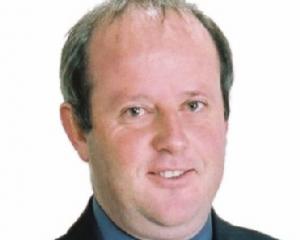
Deloitte Dunedin taxation partner Peter Truman said the IRD was aware that cash transactions took place in many industries and was determined to ensure that people who should file annual income tax returns actually filed them.
As an example of how the IRD could track down cash payments, Mr Truman said that if someone paid cash for a large flat-screen television, the IRD could request purchase records from the retailer.
The department could then access bank-account records and if they could not trace the origins of the cash, it would assume it was unreported income.
The onus was then on the taxpayer to prove the department wrong.
Spending $10 or $20 at the "corner shop" would slip through the IRD net, but hospitality workers should assume the IRD knew tips were paid and would be checking how much those workers earned, he said.
People in business, such as scrap merchants and dairy owners, could be caught in the new audit focus.
The IRD would would look at whether the cash across the counter added up to business sales.
If it did not, the owners would be asked to explain, Mr Truman said.
The law was very clear on tax avoidance.
"The hidden economy continues to be a focus for the IRD.
People deriving tips in the hospitality sector, buying and selling goods for profit on online auction sites, agricultural contractors and organised crime can expect IRD to closely scrutinise their tax position and carry out investigations where they suspected there was unreported income."
Just because crime was illegal did not mean tax should not be paid on the proceeds, Mr Truman said.
The IRD compliance focus contained a sensible list of areas where it was looking to ensure the tax system remained as robust as possible.
The IRD relied on as much tax revenue as possible being taxed correctly at source without the need to have people adjusting the position through the end-of-year tax process, he said.
The department would continue to focus on property transactions.
That had been a fruitful audit area in the past, where tax had not been paid on large gains arising in situations including property purchases with the intention of resale, and some subdivision and rezoning activity.
However, in the current market the large gains previously widespread would not be as prevalent, Mr Truman said.
The department would find it harder to keep identifying the same dollar amount of audit adjustments as it had in the past.
It was predictable that with the lifting on limits for the donation rebate there had been an increase in fraudulent claims, he said.
Previously, the limit was a maximum rebate of $630.
Now, a 33.3% rebate could be claimed on donations up to the limit of the person's taxable income.
"People making large donation rebate claims can therefore expect their claim to come under close IRD scrutiny before a claim is allowed."
Other areas to come under IRD scrutiny included high-wealth and high-income individuals, families and non-profit groups.
High-wealth individuals sometimes used internal restructuring and business shelters.
The risk areas included people who claimed tax losses on what were essentially private assets, such as holiday homes, Mr Truman said.
The IRD would focus on people who manipulated or structured family income to obtain higher Working for Families tax credits and people who did not pay the right amount of child support.
As charities were tax exempt, the IRD, in conjunction with the Charities Commission, was putting greater emphasis on ensuring entities that claimed to be charitable were in fact charitable, he said.

